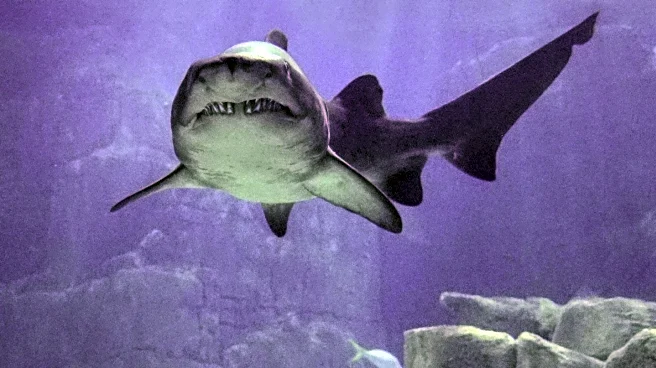What's Happening?
Cities in southern Brazil have pledged to stop purchasing shark meat for public institutions after a Mongabay investigation revealed the inclusion of endangered species in their procurement. The investigation found that angelshark, which includes critically endangered species, was being served in schools and hospitals due to mislabeling. The term 'peixe anjo' was mistakenly understood as a generic white fish rather than a threatened shark species. This revelation has led to a commitment from local governments to remove angelshark from procurement contracts, with some cities already halting purchases. The decision is part of broader biodiversity protection efforts and addresses health concerns related to heavy metal accumulation in shark meat.
Why It's Important?
The decision by Brazilian cities to stop purchasing shark meat underscores the importance of accurate labeling and awareness in conservation efforts. The move is significant for biodiversity protection, as it helps prevent the exploitation of endangered species. Additionally, it highlights the health risks associated with consuming apex predators like sharks, which can accumulate harmful substances such as mercury. This action may influence other regions to reassess their procurement practices and contribute to global efforts in protecting marine life. The case also serves as a reminder of the need for clear labeling and education to prevent similar conservation oversights.









